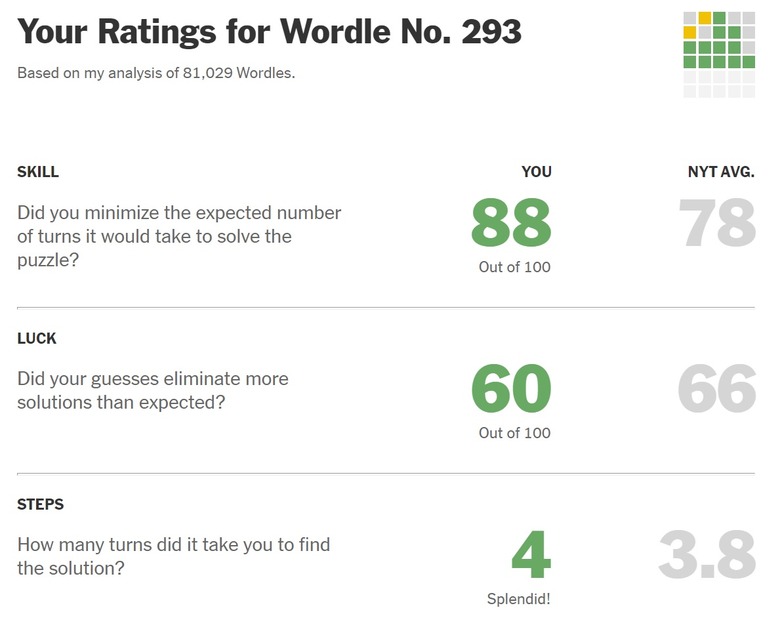WordleBot May Help You Solve Wordle With Fewer Guesses
Months after its initial rise to prominence, Wordle is still attracting hundreds of thousands of players every day. Wordle's popularity ended up netting its creator, Josh Wardle, a cool seven figures when he sold it to The New York Times in January. Fans of the game were trepidatious at first, worried that the newspaper would ruin it. So far, that has not come to pass. Instead, the Times is making the game even more interesting with WordleBot.
What is WordleBot?
As the newspaper explains, WordleBot is a tool that analyzes your completed Wordles and compares them with those of other players. It then gives you a score on a scale from 0 to 99 for skill and luck. The skill score determines what you did to "minimize the expected number of turns it would take to solve the puzzle." The luck score checks if "your guesses eliminate more solutions than expected." After that, WordleBot offers advice.
First, WordleBot analyzes your first word and gives you detailed statistics about your guess. For example, my first guess on Friday left me with 35 possible solutions. The average steps needed to solve the Wordle after my guess was 2.51. WordleBot also gave me a bunch of alternative guesses that would have gotten me to the answer more efficiently.
It does this for every guess, showing you which words would have gotten you closer to the answer faster. WordleBot also tells you if you guessed a word it would have guessed in the same situation, which is what I happened to do for my third guess.
Finally, to rub in just how much smarter it is than us all, WordleBot shows you how it would have tackled the Wordle that day. Apparently, the robot would have solved the Wordle from Friday, April 8th in two steps. Sure, buddy. I would have too if I was a WordleBot.
What's the point?
So why exactly would you want to use WordleBot? Designers Josh Katz and Matthew Conlen attempted to answer that question for The New York Times:
We hope the bot's advice will help you think about Wordle more analytically, which will help you get better at solving the puzzles in the long run. In addition, it may serve as a tiebreaker of sorts for those of you involved in competitive text chains with friends and family. If a Wordle took you five turns but you answered more efficiently than your friends, WordleBot may provide some bragging rights. If you did everything right and were simply unlucky, it will tell you that too.
At the very least, it's a fun and informative way to improve your Wordle skills. Of course, most of us are just happy to pick a word at random and start guessing every day. But for those of you who have your sights set on becoming Wordle masters, WordleBot could help you on your journey. And don't worry, it will never spoil a solution before you solve it.

